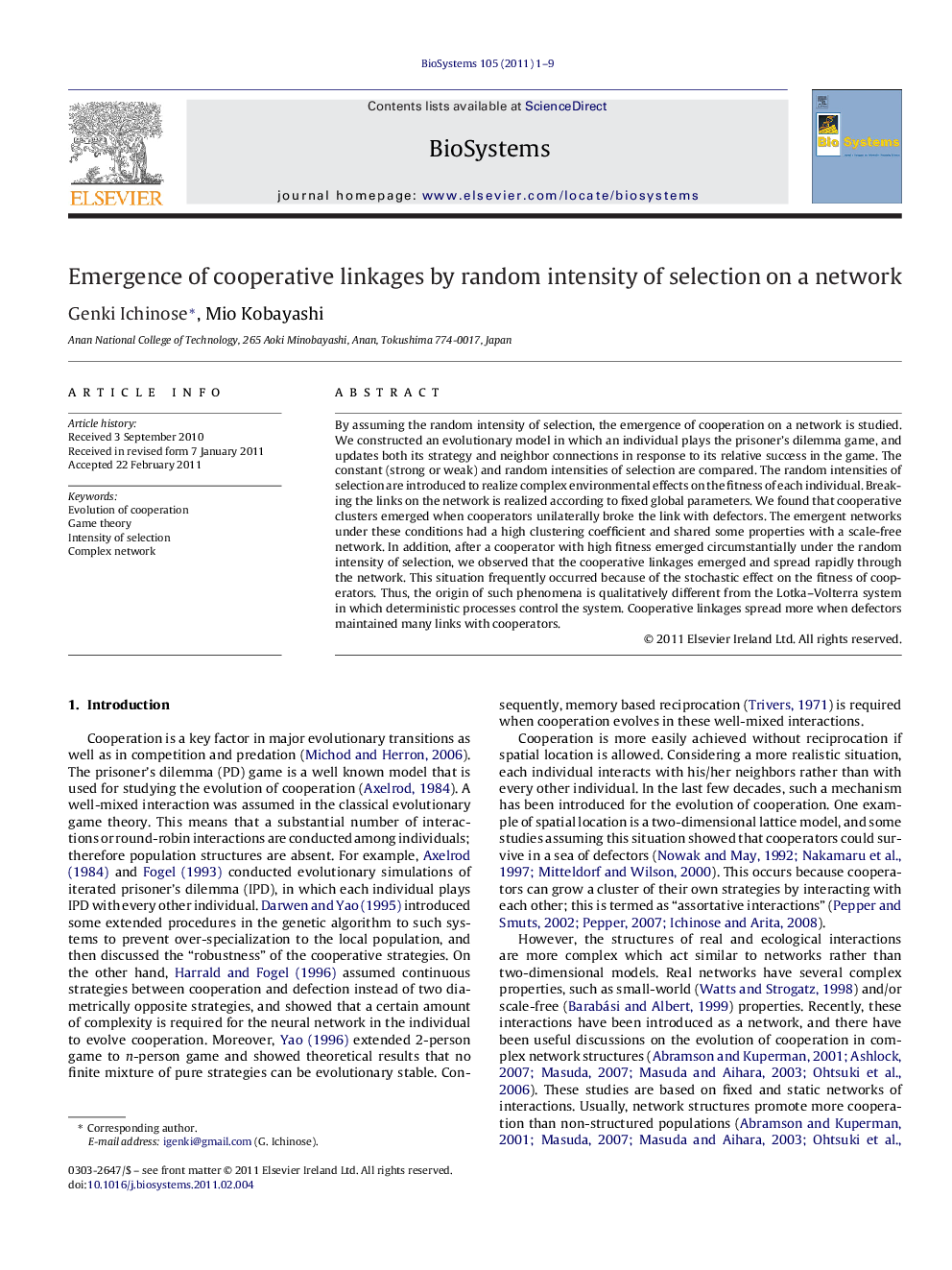| Article ID | Journal | Published Year | Pages | File Type |
|---|---|---|---|---|
| 2076711 | Biosystems | 2011 | 9 Pages |
Abstract
By assuming the random intensity of selection, the emergence of cooperation on a network is studied. We constructed an evolutionary model in which an individual plays the prisoner's dilemma game, and updates both its strategy and neighbor connections in response to its relative success in the game. The constant (strong or weak) and random intensities of selection are compared. The random intensities of selection are introduced to realize complex environmental effects on the fitness of each individual. Breaking the links on the network is realized according to fixed global parameters. We found that cooperative clusters emerged when cooperators unilaterally broke the link with defectors. The emergent networks under these conditions had a high clustering coefficient and shared some properties with a scale-free network. In addition, after a cooperator with high fitness emerged circumstantially under the random intensity of selection, we observed that the cooperative linkages emerged and spread rapidly through the network. This situation frequently occurred because of the stochastic effect on the fitness of cooperators. Thus, the origin of such phenomena is qualitatively different from the Lotka-Volterra system in which deterministic processes control the system. Cooperative linkages spread more when defectors maintained many links with cooperators.
Related Topics
Physical Sciences and Engineering
Mathematics
Modelling and Simulation
Authors
Genki Ichinose, Mio Kobayashi,
